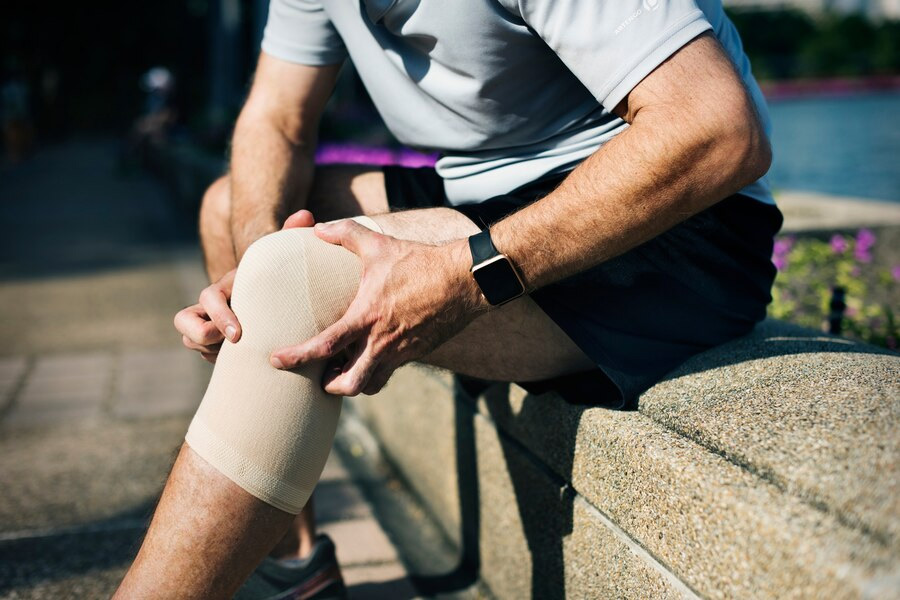
Have you ever been in a minor accident where you experienced shock but no pain initially? Did you develop symptoms a day after or when you woke up in the morning? If it’s something you’ve experienced, know that you’re not alone. Speaking with the OnlyMyHealth team, Dr Sanesh Tuteja, Consultant-Arthroscopy and Sports Medicine, Fortis Hospital, Mulund, explains the science behind this delayed pain after an accident. Here’s why your body waits to demonstrate symptoms, and know the importance of addressing an accident immediately.
Table of Content:-
Also Read: Dealing With Painful Heels This Wedding Season? Here's How THESE Yoga Poses Come To Help
Why Pain After An Accident Appears Hours Later

An accident can lead to various injuries. It can cause severe pain and discomfort. The natural response of the damaged tissue due to an accident is inflammation. This presents as rubor (redness), calor (local warmth), dolor (pain), and tumour, which are driven by the immune system cells as well as cellular chemicals called cytokines and prostaglandins. Chemicals like substance P typically contribute to inflammation-driven pain.
However, the initial response to any accident is shock, during which you fail to feel any pain.
Dr Tuteja says, "An adrenaline surge at the time of the accident can temporarily blunt the feeling of pain by a number of mechanisms."
"Adrenaline is a stress response hormone, which is secreted at the time of an injury/stress or from the perception of danger. It is a part of the survival mechanism that is hardwired in all humans. It reduces the brain’s ability to process pain signals by stimulating the release of endorphins, which are painkillers produced in the brain. Additionally, adrenaline causes the blood vessels to constrict, thereby temporarily reducing blood flow to the injured area and limiting inflammatory response temporarily," he explains.
So, as the adrenaline wears off, pain and discomfort can become apparent.
Types Of Injuries With Delayed Symptoms
“Musculoskeletal injuries like a hairline fracture or ligament injuries; brain injuries like a subdural hematoma; and sometimes internal organ injuries can present with delayed symptoms. The cause can sometimes be a missed injury; for example, a small hairline fracture may be missed in the setting of a grave polytrauma. Some injuries, like subdural hematomas and intra-abdominal injuries, can present delayed symptoms as bleeding slowly occurs around the injured area,” says Dr Tuteja.
What To Do In The Event Of An Accident

If you have been in an accident, discomfort and pain are inevitable. However, there are certain immediate measures you should take to minimise the impact and effects:
- Use the RICE protocol (Rest, Ice application, Compression, and Elevation) and first aid to clean and dress any open wound.
- Application of a temporary splint, if a fracture is suspected, can help control pain.
- If there is a suspicion of a spinal injury, it is important to call for an ambulance and paramedics to safely transfer the patient to the hospital.
- If there are any signs or concerns of head or internal organ injuries or polytrauma, it is best to call for an ambulance or visit the nearest accident and emergency department for further assessment and treatment.
Also Read: Can Pain Cause Your Blood Pressure Levels To Rise? Expert Answers
When To Seek Medical Attention

Dr Tuteja advises seeking medical attention if individuals experience pain that is severe and worsening even hours after an accident. Also, when there are certain red flags like difficulty in breathing, headache, giddiness, and inability to feel or move an extremity, immediate consultation with a doctor is advised.
Moreover, blood in vomit, cough, and urine can be signs of an internal injury that warrant urgent medical care.
Also watch this video
How we keep this article up to date:
We work with experts and keep a close eye on the latest in health and wellness. Whenever there is a new research or helpful information, we update our articles with accurate and useful advice.
Current Version
